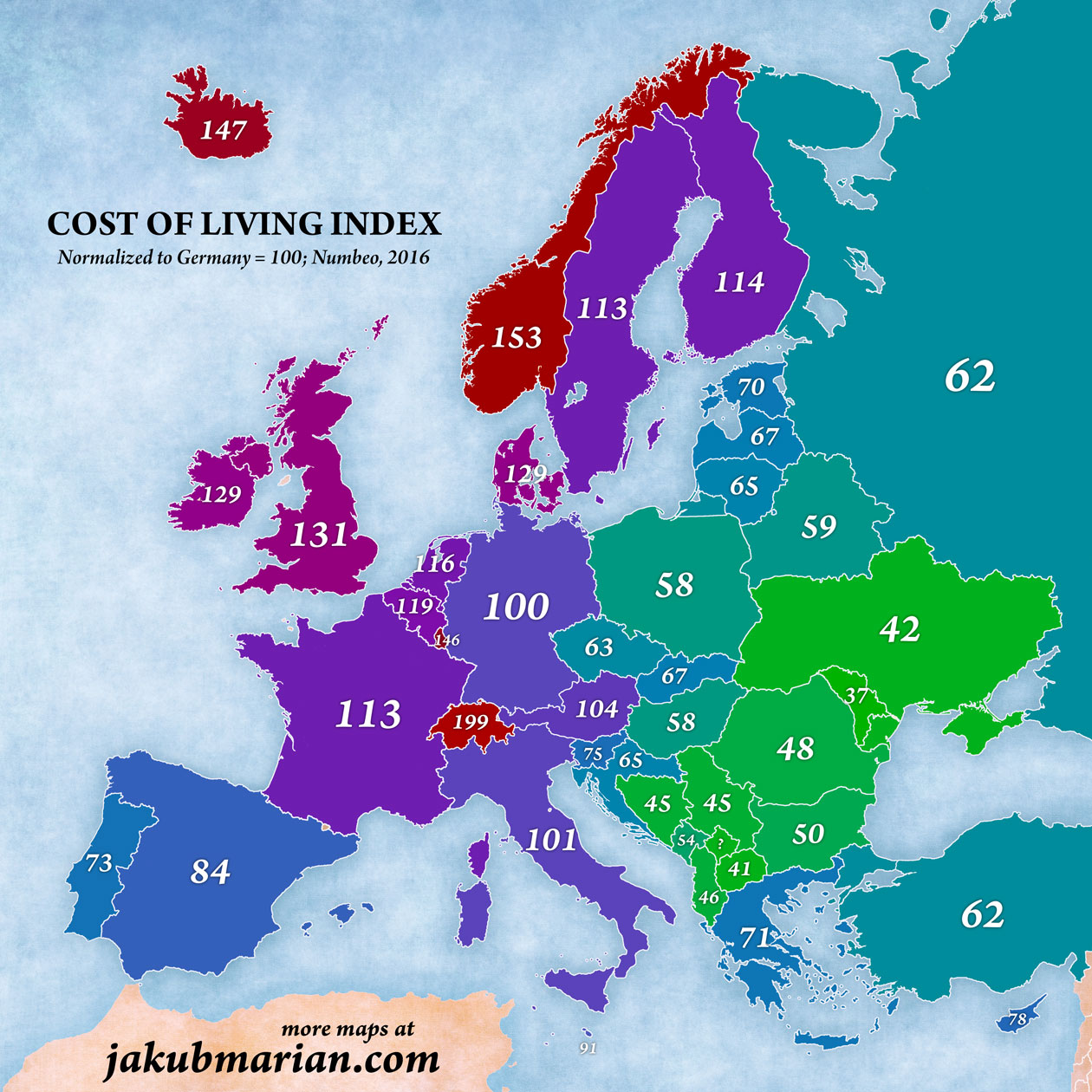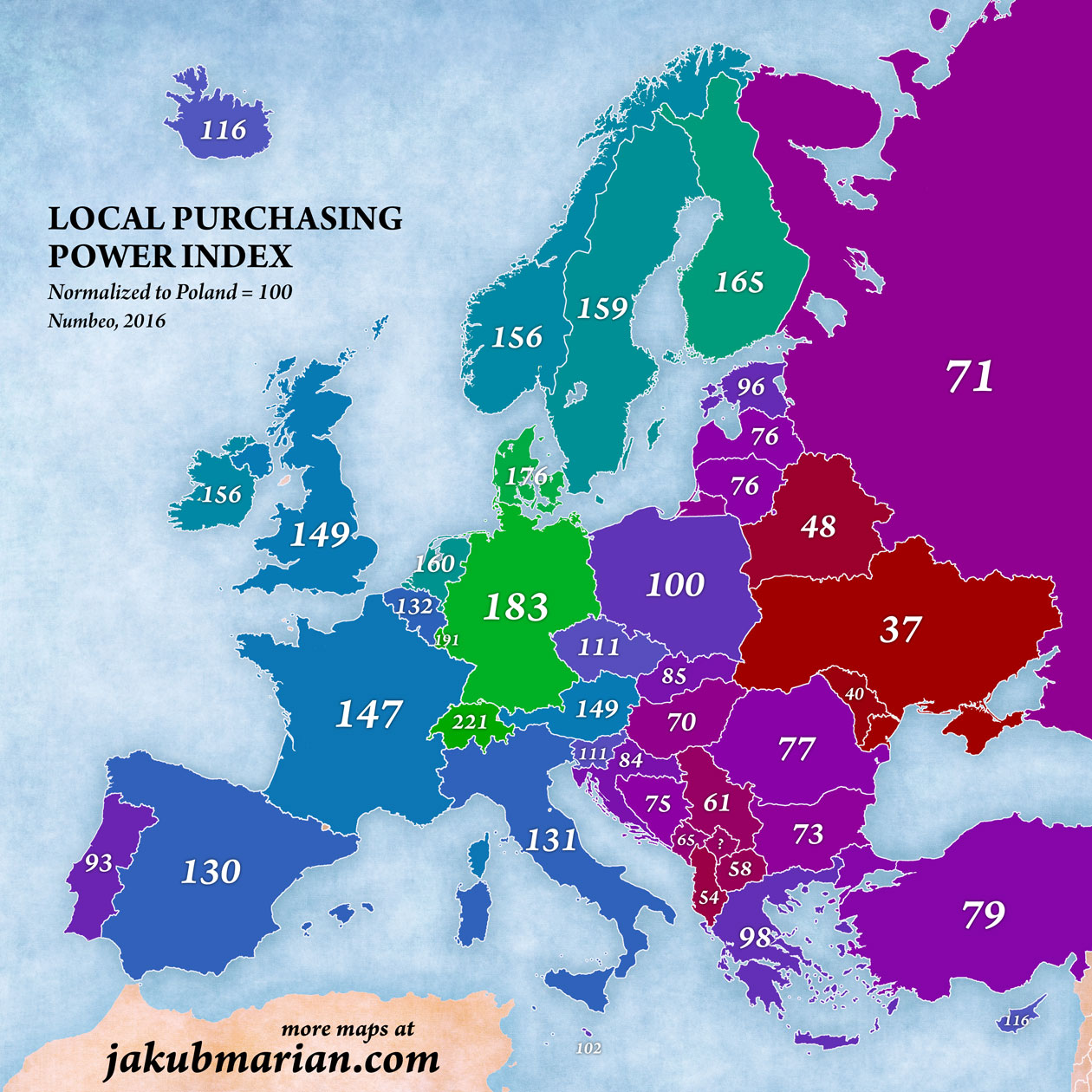If you are considering moving to another country, be it for work, studies, retirement, or simply because you like its culture or climate, you should be aware of the fact that your living expenses can significantly differ from what you were used to. Depending on where you move, you may be either shocked or pleasantly surprised.
There are typically two possible scenarios. If you move abroad to study at a university or to enjoy your retirement, you will probably have a constant source of money from your home country (in the form of savings, support from your family, or as a pension).
If this is the case, all you need to know is how expensive (or cheap) living your destination is in comparison to your current country of residence—and this is what the first of the following two maps shows (the data are based on the Numbeo database).
To understand the values, imagine you are currently living in Germany (whose index is 100) and you spend €2000 a month (for rent, groceries, other goods, and services). If you move to Norway (value 153), you will have to spend 153/100 = 1.53 times more, or €3060 a month, to maintain the same standard of living. If, on the other hand, you move to Moldova (index 37), you will need to spend just €740 a month.

If you move with the intention of finding a new job in your destination country, the example above no longer applies, because one of the most significant reasons for the differences in prices is the cost of labour (i.e. your future wage).
The problem is that there are other costs than just the cost of labour. The rule of thumb (which seems to work quite well for most European countries) is: In order to halve the prices, you need to pay workers about 4x less.
One of the most extreme examples is Germany. If you spend €2000 every month in Germany and move to Bulgaria, you will need to spend only €1000 to maintain the same standard of living. However, the average (net) wage in Germany is about €2600 (so spending €2000 is not a problem), whereas the average wage in Bulgaria is only about €400 (about 6.5x less than in Germany), so an average Bulgarian cannot afford to spend €1000 a month to maintain the same standard of living as an average German.

The map above shows the local purchasing power index of each country (now it is Poland whose value was set to 100 because it lies approximately in the middle, both geographically and numerically). The value itself does not matter, but the ratio of the indices of two different countries tells you how many times more (or less) goods, services, rents, etc., an average inhabitant of the first country can buy compared to the other country.
For example, an average German can buy almost twice (1.83x) as many cars, rent twice as many flats, eat twice as often in a restaurant, etc., than an average Pole.
 Tip: Are you a non-native English speaker? I have just finished creating a
Tip: Are you a non-native English speaker? I have just finished creating a  Web App
Web App
